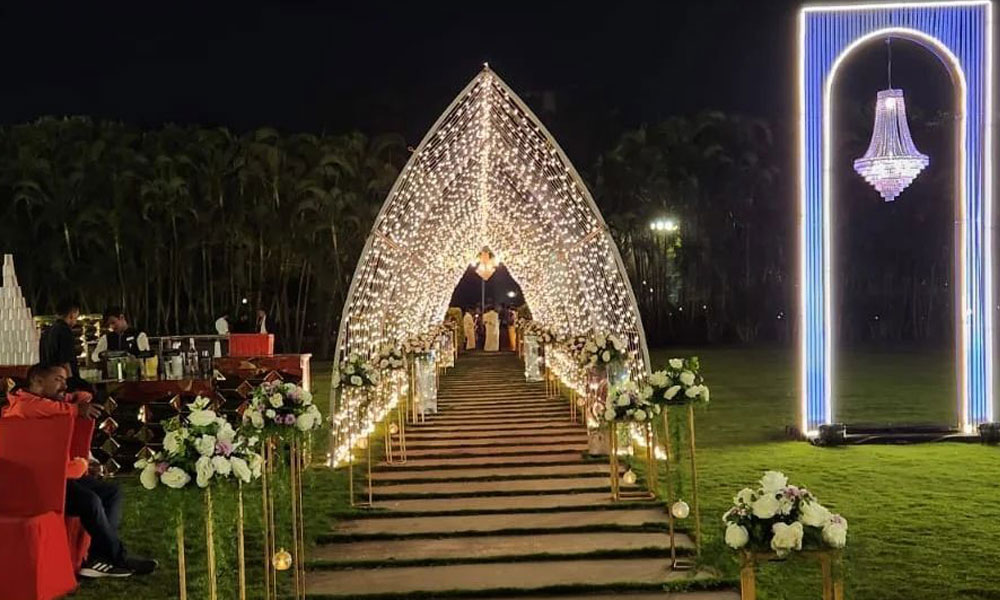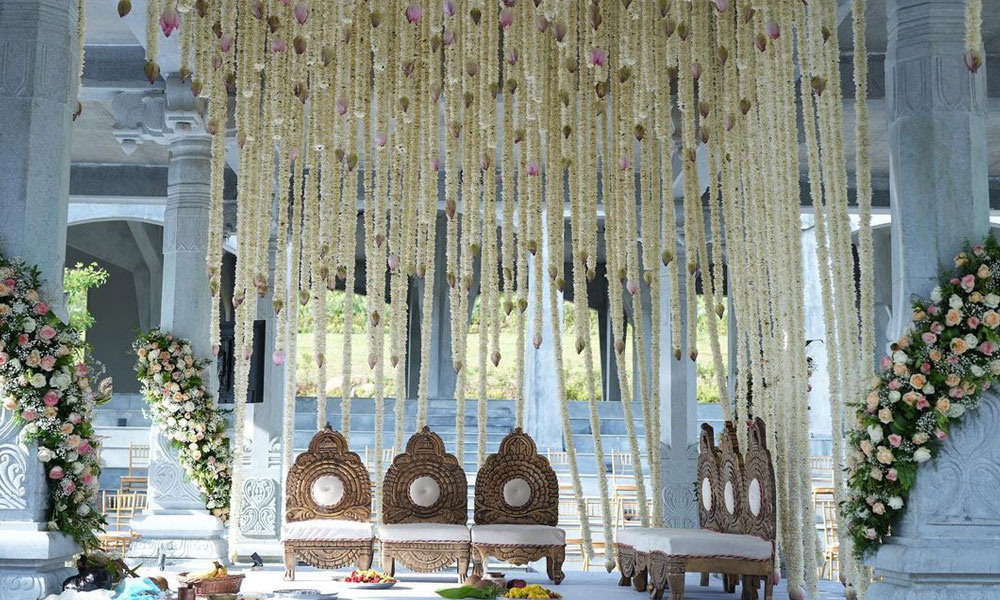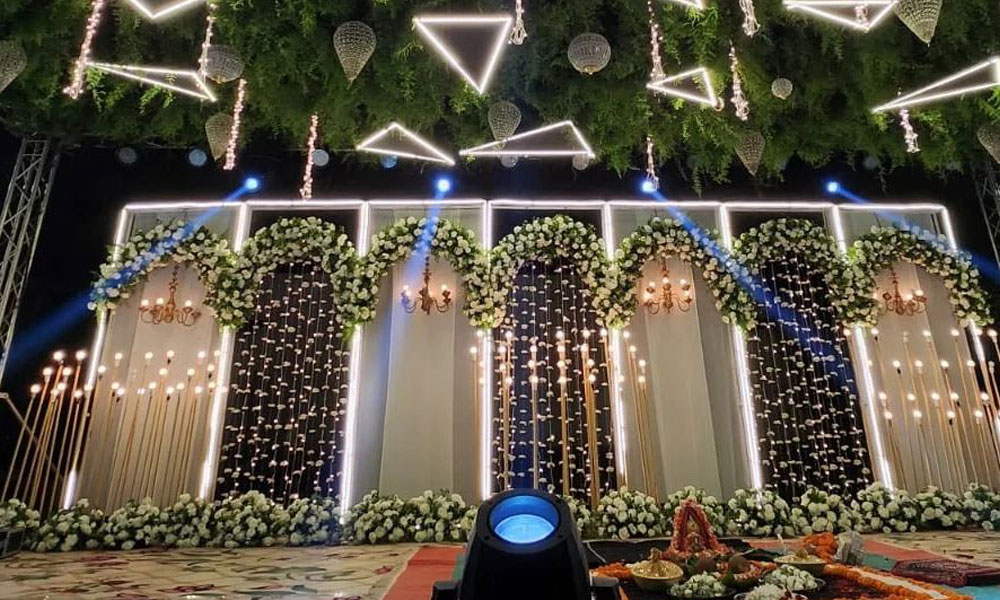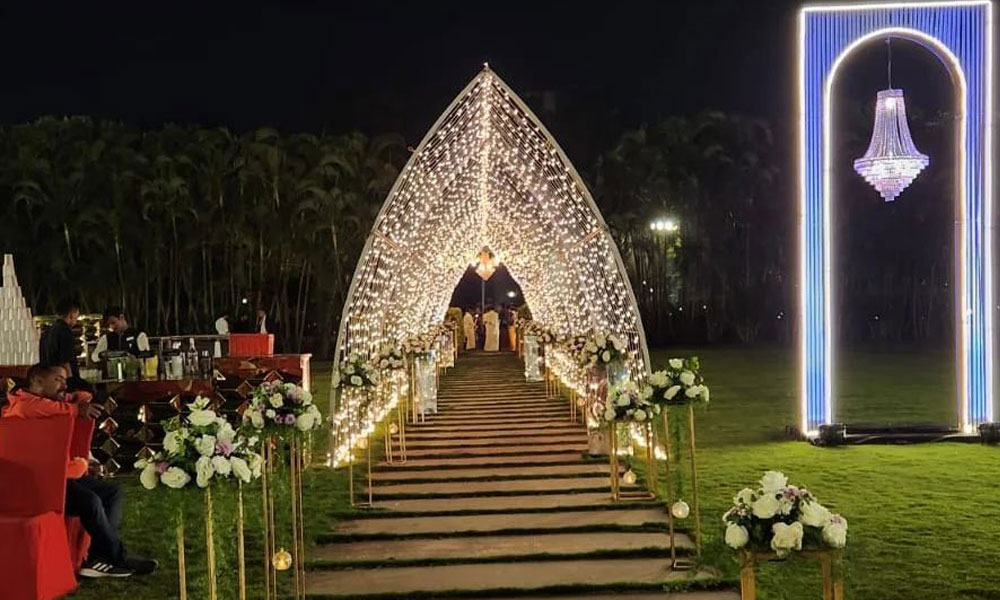15 Tips to Plan a Destination Wedding
Planning a destination wedding is an exciting and adventurous journey that requires careful preparation and attention to detail. From choosing the perfect location to coordinating travel arrangements for guests, there are numerous aspects to consider when planning a destination wedding.
To help ensure a smooth and memorable experience, we have compiled 15 essential tips to guide you through the process of planning your dream destination wedding. Whether you envision a tropical beach ceremony, a romantic countryside celebration, or a cosmopolitan affair in a vibrant city.
So, grab your wedding planner and get ready to embark on an extraordinary journey filled with love, celebration, and breathtaking destinations. Let’s dive into the 15 tips that will help you plan your picture-perfect destination wedding.

1. Destination Weddings
A destination wedding is a unique type of wedding event where the betrothed couple chooses to host their wedding ceremony outside their local community, often in an exotic or idyllic location. These weddings offer a vacation-like experience, combining the romantic act of matrimony with the allure of a memorable getaway.
The venues can range from sunny beach resorts and picturesque vineyards to majestic mountains or historic European cities. The size of a destination wedding can vary, with some being intimate events with close family and friends, and others being grand affairs with extensive guest lists. Destination weddings provide an opportunity for the couple and their guests to immerse themselves in the local culture and scenery, making the event a unique and
2. Why Choose a Destination Wedding
Choosing a destination wedding can offer couples a remarkable and unique experience that goes beyond the traditional local ceremony. There are several compelling reasons for choosing a destination wedding. Firstly, it allows couples to tie the knot at a location that holds sentimental value or at a place they’ve always dreamed of visiting.
Secondly, destination weddings often double as a vacation for the couple and their guests, providing a more relaxed and leisurely atmosphere. They also give an opportunity for more intimate bonding time over a few days, as opposed to a few hours at a traditional wedding.
Lastly, a destination wedding allows couples to break away from conventional norms and rituals, providing a chance to personalize the ceremony in a manner that reflects their unique love story and personalities.

3. Exploration of the Benefits of Choosing a Destination Wedding
Destination weddings often also come with all-inclusive packages, simplifying the planning process and reducing the stress often associated with wedding preparations. They can also be more cost-effective, as they often involve a smaller guest list.
Extended Celebration: Destination weddings often last for several days, which allows families and friends to spend more quality time together and create lasting memories. It’s not just a wedding ceremony and reception, but a mini vacation for everyone involved.
Personalized and Unique Experience: The choice of location can reflect the couple’s personality and interests, making the wedding more meaningful. Whether it’s a beach, a mountain, or a city, the couple can share their favorite place with their loved ones.
Cost-effective: Depending on the destination and number of guests, a destination wedding can be more cost-effective. Some resorts offer wedding packages that include all aspects of the wedding, which can reduce costs and stress.
Simplified Guest List: A destination wedding can also help to naturally narrow down the guest list, as only close friends and family are likely to attend. This can lead to a more intimate and personal celebration.
Combine Wedding and Honeymoon: Another advantage is that the couple can easily transition from their wedding into their honeymoon, as they are already at their desired location. This not only saves time and money but also allows them to continue the celebration just for the two of them.

4. Discussion on the Mindset needed when Planning such a Wedding
Planning a destination wedding requires a different mindset compared to a traditional wedding. Here are some key elements to consider:
Flexibility: As you’re dealing with a distant location and possibly a different culture, you’ll need to be flexible with certain decisions. It might not be possible to have every single detail as you’d have in a local wedding.
Early Planning: With a destination wedding, the earlier you start planning, the better. This gives you ample time to research your location, visit if possible, and deal with legalities if getting married abroad.
Renounce Control: Unlike local weddings where you can be hands-on with every detail, you may need to rely more on your wedding planner for a destination wedding. You’ll have to trust their expertise and let go of certain controls.
Guest Consideration: Be prepared that not everyone you invite will be able to attend due to the travel commitment. Also, consider planning some activities or providing information for guests to enjoy the location.
Budget Consciousness: Though potentially cost-effective, unexpected expenses can arise in destination weddings. Keeping a close eye on your budget is essential.
Legalities and Paperwork: If you’re getting married in a different country, there could be additional paperwork or legal requirements. Research this thoroughly to avoid any last-minute issues.
Embracing these aspects of planning can help ensure a memorable and less stressful destination wedding.
5. The Cost of a Destination Wedding
The cost of a destination wedding can vary significantly, primarily depending on the location, number of guests, and personal preferences. Here are some cost-related aspects to consider:
Location Cost: Some locations are inherently more expensive than others. For example, a wedding in an exclusive resort in the Maldives will cost more than a rustic retreat in a less touristy part of the world.
Travel and Accommodation: The cost of getting to the destination and staying there will be a significant portion of the budget. This can include airfare, hotel stays, meals, and local transportation.
Wedding Services: The costs of hiring local vendors for services like photography, catering, and decor can vary widely from one location to another. It’s important to research these costs ahead of time.
Guest Expenses: If you’re planning to cover travel or accommodation costs for your guests, this will add significantly to your budget.
Event Extras: Extras like rehearsal dinners, welcome parties, or day-after brunches will also add to the cost.
Unexpected Expenses: From last-minute decor changes to currency exchange rates, unexpected costs can arise. It’s advisable to set aside a contingency budget.

6. Factors that Influence the Cost
Guest Count: The number of guests is a significant factor. More guests mean more accommodation, catering, and venue costs.
Location: More popular or remote destinations may cost more due to higher travel, accommodation, and wedding planning service prices.
Time of Year: Peak tourist season at the destination will mean higher costs for travel and accommodation.
Venue and Accommodation: The cost of renting the venue and accommodation type can influence the total cost significantly. Luxury resorts will cost more than budget-friendly options.
Wedding Services: The quality and type of services you choose, such as a gourmet caterer vs. a local restaurant, will also affect costs.
Travel Costs: The cost of travel to and from the destination is a significant factor, especially for international destinations.
7. Choosing the Perfect Location
Choosing the perfect location for a destination wedding depends on the couple’s preferences, budget, guest list, and other factors:
Personal Significance: The location should have personal significance to the couple. It could be a favorite vacation spot, where they got engaged, or a place they’ve always wanted to visit.
Budget: The location should be within the couple’s budget. This includes consideration of travel, accommodation, and other costs related to the destination.
Accessibility: It should be easily accessible for the couple and their guests. Locations that require multiple flights or long drives can be inconvenient for guests.
Amenities: The location should have the necessary amenities and infrastructure to host a wedding. This includes good-quality hotels, venues, local vendors, and transport facilities.
Comfort and Safety: The safety and comfort of the guests should be a priority. The location should be safe, and any potential health risks (like altitude sickness or tropical diseases) should be considered.
Legalities: The location should have straightforward legal requirements for hosting a wedding, especially if it’s an international location. Some countries have complicated laws around weddings for non-residents.

8. The Importance of Hiring a Wedding Planner
Hiring a wedding planner is crucial, especially for a destination wedding. Planners have local knowledge and connections that can help you make the best decisions. They’re familiar with the wedding customs, best vendors, suitable venues, and the paperwork required.
They can also negotiate contracts on your behalf, ensuring you get the best deals. Having a wedding planner can save you time and stress, allowing you to enjoy the process. They can handle any unforeseen issues that arise, ensuring your big day goes off without a hitch. Remember, you want your wedding day to be a joyous celebration, not a source of stress.

9. Considering Guest Accommodations
Guest accommodations are an important factor in planning a destination wedding. You must ensure that the accommodations are comfortable, accessible, and within your guests’ budget. Proximity to the wedding venue is key to reducing transportation issues. When booking, consider the different needs of your guests such as families with children who may require larger rooms or kitchen facilities.
Also, consider if your guests would prefer a variety of options to choose from. Including this information in your invitations or a wedding, website can help guests make the best choice for their needs and budget. It’s a nice gesture to consider contributing to or covering the cost of accommodations for your guests if your budget allows it.

10. Choosing the Perfect Wedding Decorator
When planning a destination wedding, choosing the right wedding decorator can have a huge impact on the overall aesthetics of your event. It’s vital to select a decorator who understands your vision, style, and preferences. Take time to research their portfolio to ensure their style matches yours.
Reviews from previous clients can provide valuable insight into their professionalism and attention to detail. A face-to-face meeting or video call is also recommended before finalizing the decision. Remember, the decorator will be responsible for setting the mood and atmosphere of your wedding venue, so choose someone you can trust to bring your dream wedding to life.

11. Embracing Local Culture to Save Money
Destination weddings offer a unique opportunity to incorporate local culture into your event, which can also help you save money. Local flowers, cuisines, music, and traditions can add an authentic touch to your wedding while reducing costs associated with importing these from home.
For instance, you can opt for local musicians or performers instead of hiring a band from your home country. Similarly, using local, in-season flowers can dramatically cut down your decor costs. Not only does this approach make your wedding more unique and personalized, but it also allows you and your guests to experience and enjoy the local culture.

12. Visiting the Location
Site Inspection: Visiting the location allows you to inspect the site personally, giving you a real sense of the place and its atmosphere. You can note its physical attributes such as the view, ambiance, lighting, and noise levels.
Accessibility Evaluation: Assess the accessibility of the location from various points, like the proximity to the airport, availability of public transport, and parking facilities.
Amenities Check: During the visit, you can check the available amenities such as restrooms, dressing rooms, catering facilities, and accommodations if relevant.
Risk Assessment: This involves checking the location for any potential risks, such as weather concerns or safety issues, which could impact your wedding day.
Coordinator Meet: If the venue provides an on-site coordinator, meeting with them in person can be very beneficial to understand how they operate and what support they will provide on the day.
13. Meeting Your Vendors
Assessing Vendor Portfolio: Before meeting with potential vendors, peruse their portfolios to understand their style, quality, and experience. It’s a chance to see if their offerings align with your vision for the wedding.
Clarifying Expectations: The meeting is the perfect opportunity to discuss your expectations and requirements. Express your vision, theme, and color palette, and discuss how they can contribute to making it a reality.
Understanding Services and Packages: Different vendors offer varied services and packages. This meeting allows you to get a clear understanding of what’s included in their services, the costs, and what additional charges might apply.
Checking Availability: Confirm the vendor’s availability for your wedding date. If they have multiple bookings on the same day, discuss how they plan to manage their time and resources.
Discussing Contingency Plans: It’s crucial to talk about contingency plans with vendors. This might include what happens in case of bad weather for outdoor events, equipment failure, or if a key team member falls sick.
Negotiating Contracts: After discussing all the specifics, negotiate the contract details such as pricing, payment schedule, cancellation policy, and any additional costs.
Building Rapport: Meeting vendors in person helps build rapport. A good relationship with your vendors can lead to better cooperation and smoother planning and execution of your wedding.

14. Planning Additional Events
When organizing a destination wedding, it’s not just the ceremony that matters. The event is often spread over several days, making it a miniature vacation for you and your guests. This is why planning additional events is a crucial aspect of destination weddings. These activities can range from welcome dinners, spa days, local sightseeing trips, to post-wedding brunches.
These events give guests a chance to mingle and enjoy the locale outside of the wedding ceremony. While planning these extra events, consider the interests and comfort of your guests, and also make sure not to overbook their schedules. Always leave room for relaxation and spontaneous fun. Remember, these additional events can truly elevate the entire wedding experience, making it more memorable for everyone involved.
15. Using Natural Elements to Enhance the Ambiance
While planning a destination wedding, it’s crucial to budget for unexpected expenses. These may include last-minute guest accommodations, transportation issues, or unforeseen venue costs. Additionally, depending on the location, you may face varying currency exchange rates or additional taxes.
It’s always wise to have a contingency fund set aside to handle such unforeseen expenses. This will ensure that even with unexpected costs, your wedding can proceed smoothly without any financial stress.

Conclusion
These 15 tips provide invaluable guidance for planning a destination wedding. From choosing the perfect location to considering guest accommodations and embracing local culture, these tips will help ensure a seamless and memorable celebration.
With careful planning, a positive mindset, and the support of a wedding planner, your dream destination wedding will become a reality. Get ready to embark on an extraordinary journey filled with love, celebration, and breathtaking destinations.
